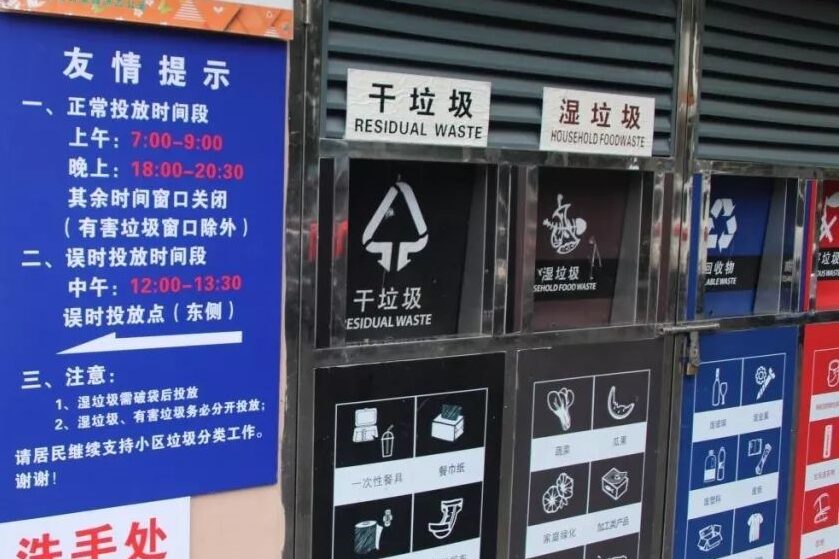What kind of garbage? An view of Shanghai’s garbage-sorting policy
UncategorizedAuthor’s words: Due to limited time to complete a detailed report, I chose to translate an environmental theme article on garbage-sorting in Shanghai that I had previously written with my group members. Since the adoption of Shanghai’s waste-sorting regulation in 2019, we can see some progress. More details can be found on the government website.
Article1: Shanghai sets new target as waste-sorting rate rises
Article2: Not a load of rubbish! Waste treatment plant turns into a tourist destination
———————————–
“What kind of garbage are you?” As Shanghai moves to fully conduct the garbage-sorting regulation, residents are teasing themselves about this daily question. However, putting aside the joke, behind the “new fashion” of environmental protection, there are still practical problems such as garbage classification principle, waste-dropping time and device, and law enforcement to be improved.
Classification Principle: Do not distinguish dry and wet garbage by water content

Since July 1, 2019, Shanghai has fully implemented a garbage classification system, which classifies garbage into four categories—recyclable, harmful, dry, and wet waste. This is a scientific management for effective disposal of garbage, but some residents also have some doubts. Ms. Xu, a Shanghai resident expressed her confusion on social media: If avocado shells belonged to wet waste and avocado pits belonged to dry waste, what category does a rotten avocado belong to?
“The principle of garbage classification depends on how it will be disposed in the end,” explained Li Guohua, a staff of the Minhang District Greening and Urban Appearance Administration.
The difference between dry and wet is about whether it is easy to degrade rather than its water content rate. Wet waste needs to rely on specialized machines to be smashed before landfilling, as rice dumpling leaves, bones, etc. tend to twine with the machines and are more difficult to handle, so they are classified as dry waste.
Encouragement: Set up a green account

The “Green Account” is a garbage sorting reward system in which residents who deposit garbage within a specified period can obtain points to exchange for various kinds of daily necessities. However, Ding Yuehua said that constant manual check-in can also weaken the enthusiasm of volunteers.
As one of the model sites for garbage classification in Minhang District, Gumei Village launched intelligent garbage bins. Outside of the bin, there is an intelligent device that allows residents to manually enter their house number or just speak. The garbage bin not only recognizes Mandarin but also understands the Shanghai dialect. After successful recognition, the garbage bin will open and the points will be automatically uploaded to the green account. It is up to each neighborhood to decide whether or not to adopt intelligent facilities and to be responsible for the subsequent maintenance costs.
As for the different waste-dropping time schedules in different neighborhoods, Li Guohua explained that this is decided by each neighborhood committee. Liu Ping, neighborhood committee secretary of Shuiqing Village, said, “The neighborhood committee watched the surveillance for two months to find out the peak time for the people to throw garbage before determining the waste-dropping time.”
Who enforces the regulations?
Fan Chunhua, neighborhood manager of Shuiqing Village, said the property company arranges volunteers around garbage drop-off points to prevent residents from throwing garbage casually, hoping to play a role in guiding them. “But the neighborhood committees have no enforcement power, we do not know how to implement the fines.”
The Shanghai Domestic Waste Management Regulations state that the city’s urban management and law enforcement departments are responsible for investigating and punishing offenses and providing guidance and supervision. Individuals who mix hazardous garbage with recyclables, wet garbage or dry garbage, or mix wet garbage with recyclables or dry garbage, will be ordered by the city’s urban management and law enforcement departments to make immediate corrections; if they refuse to do so, they will be fined from 50¥(about 6.5€) to 200¥(about 26€).
“Sorting garbage is a process of changing habits and gradually improving the quality of civilization. It is difficult to change people’s habits only by rewards or punishments. it will take some time for the society to become more environmentally friendly”, Li Guohua says.